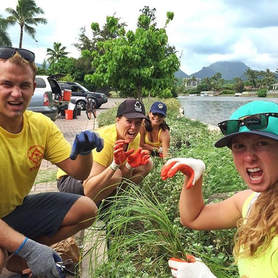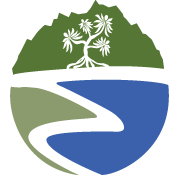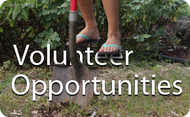 Summertime is in full swing here in Hawaii and that means the amount of people visiting the islands is up. This influx of visitors is great for businesses but takes a toll on our island resources. It is our kuleana to take care of our island home and it's great to know that we have businesses who take the time to do just that. We would like to spotlight one of these organizations, Kailua Beach Adventures, who are community leaders in environmental stewardship and a big help to HOK in maintaining our Popo'ia Street Low Impact Retrofit Project. Kailua Beach Adventures takes the time to educate each of their customers on how to be more environmentally conscious during their island explorations. Additionally, KBA donates a portion of their proceeds to help restore the Mokulua and Popoi'a islands. They are certified in sustainable tourism by the Hawaii Ecotourism Association and have even received The Surfrider Foundation's John Kelly Award, a prestigious award that recognizes environmentally conscious individuals and companies. KBA staff and supporters regularly participate in community clean-ups and their storefront even hosts a marine plastic recycling drop off station that is then processed by Sustainable Coastlines Hawaii and used by Parley to make things like Adidas' shoes. On your way to Kailua Beach? Stop by Kailua Beach Adventures to say "Mahalo" and check out the Kailua Bay Learning Center where their customers, beach goers and ocean users can learn about the local eco-system, marine life, challenges facing ocean health and some of the solutions that we can all be a part of. Thank you to Kailua Beach Adventures for being a model for other businesses and an advocate for our 'āina! Find out more about Kailua Beach Adventures on their website by clicking here. Kailua Beach Adventures is located at 130 Kailua Rd.
0 Comments
Your comment will be posted after it is approved.
Leave a Reply. |
Archives
September 2022
Our MissionThe mission of Hui o Ko`olaupoko is to protect ocean health by restoring the `aina: mauka to makai. This is done in partnership with stakeholders including interested citizens, non-governmental organizations, government, educational institutions and businesses while using and focusing on sound ecological principles, community input, and cultural heritage. Categories
All
|

 RSS Feed
RSS Feed

